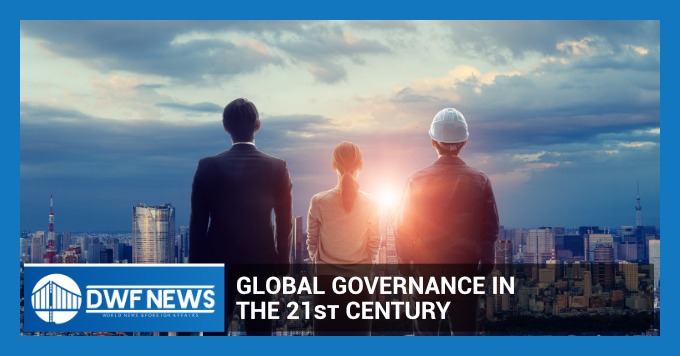Written By Augusto Lopez-Claros
International Economist| World Bank
March 2, 2020
Article originally published by Center on National Security
The Swedish Foundation felt that the United Nations system was no longer fit for purpose – it no longer fulfilled the aims for which it was established. Clear evidence for this is the fact that we are confronting a range of global catastrophic risks which are putting enormous pressure on our existing institutions, which have remained largely frozen in time in their essential features and find themselves increasingly unable to cope with the challenges that we face in a world that bears little resemblance to the one we had in 1945, at the outset of the postwar period. To take a few examples.
On the issue of climate change, scientists are increasingly alarmed about the consequences of rising sea levels, extreme weather conditions, and biodiversity loss and what these might mean for food production in the context of steady population growth. The recent reports of the IPCC (Intergovernmental Panel on Climate Change) highlight the rapid narrowing of opportunities over the next decade, to take urgent actions to mitigate possibly large-scale disruptions to our social, economic and political order.
Another issue is nuclear proliferation, which has been a constant during much of the last 75 years and has not disappeared as a problem with the end of the Cold War. Add to this a renewed arms race and 9,000 nuclear warheads, with enough firepower to convert our planet into what Jonathan Schell termed “a republic of insects and grass” . . .
What is World Federalism?
World Federal Government (WFG)
Original Publisher
Center on National SecurityAugusto Lopez-Claros is an international economist with over 30 years of experience in international organizations, including most recently at the World Bank. For the 2018/2019 academic years Augusto Lopez-Claros was on leave from the World Bank as a Senior Fellow at the Edmund Walsh School of Foreign Service at Georgetown University. Between 2011 and 2017 he was the Director of the World Bank’s Global Indicators Group, the department responsible for the Bank’s Doing Business report and other international benchmarking studies. Previously he was Chief Economist and Director of the Global Competitiveness Program at the World Economic Forum in Geneva, where he was also the Editor of the Global Competitiveness Report, the Forum’s flagship publication, as well as a number of regional economic reports. Before joining the Forum he worked for several years in the financial sector in London, with a special focus on emerging markets. He was the International Monetary Fund’s Resident Representative in the Russian Federation during the 1990s.
Related Articles
DWF NEWS List of Articles for 5/16/24
CNN investigation finds Israel guilty of unthinkable torture Report: Israeli Prisons Subject Palestinians to Constant Torture, "Revenge" Sharon Zhang US Politicians Threaten to Invade International Criminal Court if Israel Faces War Crimes Ben Norton A Culture...
ARTICLES FOR THIS ISSUE: May 2, 2024
Dirty trick to help Israel continue genocide? US to Spend $350 Million Constructing Gaza Pier Dave DeCamp Antiwar.com Why They Hate Us: Decent Jews Against Occultist Khazarian Kid Killers Alan Wagman Common Dreams Student protests show conscience still counts...
ARTICLES FOR THIS ISSUE: DWF NEWS APRIL 18, 2024
Israel's sickening history of crimes against humanity Dead on Arrival: Israel's Blowback Genocide Ellen Cantarow Iran puts Israel on notice The Missiles of April Scott Ritter U.S. Government Bullies Weak Nations Eric Zuesse Does Project 2025 suggest a 'Taliban...
Solving Global Problems
We can work together to make the world better

